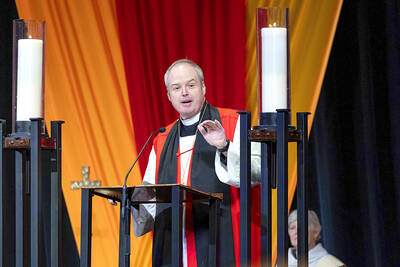Bottle-fed babies might ingest more than 1 million pieces of microplastics each day, new research showed on Monday, highlighting the abundance of plastics in our food products.
There is growing evidence that humans consume huge numbers of the tiny particles, formed when larger pieces of plastic break down, but very little is known about the knock-on health consequences.
Researchers in Ireland looked at the rate of microplastic release in 10 types of baby bottles or accessories made from polypropylene, the most commonly used plastic for food containers.
They followed official guidelines from the WHO on sterilization and formula preparation conditions.
Over a 21-day test period, the team found that the bottles released between 1.3 million and 16.2 million plastic microparticles per liter. They then used this data to model the potential global infant exposure to microplastics from bottle-feeding, based on national average rates of breast-feeding.
They estimated that the average bottle-fed baby could be ingesting 1.6 million plastic microparticles every day during the first 12 months of their lives.
The authors of the research, published in the Nature Food journal, said that sterilization and exposure to high water temperatures had the biggest effect on microplastic release, going from 0.6 million particles per liter on average at 25°C to 55 million/liter at 95°C.
The authors said the aim of the research was “not to worry parents” about the potential health risks of bottle microplastics.
“We have communicated, as strongly as we can, that we do not know the potential health risks of infant ingestions of microplastics,” the team from Trinity College Dublin said. “This is an area of research we are now actively pursuing.”
The authors added that it was in developed nations that babies were likely ingesting the most plastic — 2.3 million particles daily in North America and 2.6 million in Europe.
This was attributed to relatively low breast-feeding rates in richer countries.
They said the levels could easily be lowered by taking a few additional steps, including rinsing bottles with cold sterilized water and preparing formula milk in a non-plastic container before filling the bottle.
Fay Couceiro, a senior research fellow in biogeochemistry at the University of Portsmouth in England, said that Monday’s research highlighted the “urgency for studies on microplastic impacts on human health.”
She said that it was important not to be “alarmist” when it came to bottle feeding, which many parents prefer for a variety of reasons.
“The risks from not sterilizing bottles or using hot water are well understood and very real, and these known risks of disease must outweigh that of microplastic production until their health risks are understood,” said Couceiro, who was not involved in the study.

FRAUD ALLEGED: The leader of an opposition alliance made allegations of electoral irregularities and called for a protest in Tirana as European leaders are to meet Albanian Prime Minister Edi Rama’s Socialist Party scored a large victory in parliamentary elections, securing him his fourth term, official results showed late on Tuesday. The Socialist Party won 52.1 percent of the vote on Sunday compared with 34.2 percent for an alliance of opposition parties led by his main rival Sali Berisha, according to results released by the Albanian Central Election Commission. Diaspora votes have yet to be counted, but according to initial results, Rama was also leading there. According to projections, the Socialist Party could have more lawmakers than in 2021 elections. At the time, it won 74 seats in the

A Croatian town has come up with a novel solution to solve the issue of working parents when there are no public childcare spaces available: pay grandparents to do it. Samobor, near the capital, Zagreb, has become the first in the country to run a “Grandmother-Grandfather Service,” which pays 360 euros (US$400) a month per child. The scheme allows grandparents to top up their pension, but the authorities also hope it will boost family ties and tackle social isolation as the population ages. “The benefits are multiple,” Samobor Mayor Petra Skrobot told reporters. “Pensions are rather low and for parents it is sometimes

CANCER: Jose Mujica earned the moniker ‘world’s poorest president’ for giving away much of his salary and living a simple life on his farm, with his wife and dog Tributes poured in on Tuesday from across Latin America following the death of former Uruguayan president Jose “Pepe” Mujica, an ex-guerrilla fighter revered by the left for his humility and progressive politics. He was 89. Mujica, who spent a dozen years behind bars for revolutionary activity, lost his battle against cancer after announcing in January that the disease had spread and he would stop treatment. “With deep sorrow, we announce the passing of our comrade Pepe Mujica. President, activist, guide and leader. We will miss you greatly, old friend,” Uruguayan President Yamandu Orsi wrote on X. “Pepe, eternal,” a cyclist shouted out minutes later,

The White House on Tuesday questioned the humanitarian commitment of the Episcopal Church after it refused to comply with a federal directive to help resettle South Africans granted refugee status by US President Donald Trump’s administration. On Monday, about 50 South Africans arrived for resettlement in the US after Trump granted them refugee status as victims of what he called a “genocide,” a claim rejected by the South African government. On Monday, the Episcopal Church said that it would end its refugee resettlement program with the US government rather than comply with the administration’s orders to help resettle the South Africans. White House